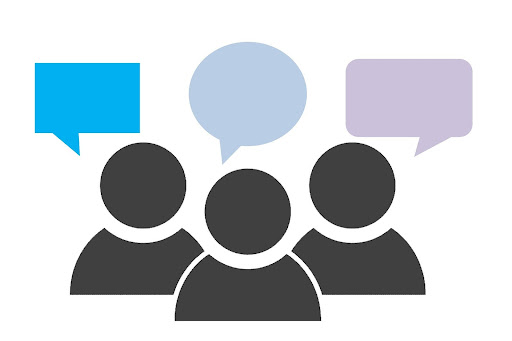 If you’re using the words “sorry” and “thanks”, then you run the high risk of sounding lame. These two words are thrown around so haphazardly and without any genuine feeling that they rank as having negative effects on your personal brand much like “umms”, “you knows” and “stuff like that”.
If you’re using the words “sorry” and “thanks”, then you run the high risk of sounding lame. These two words are thrown around so haphazardly and without any genuine feeling that they rank as having negative effects on your personal brand much like “umms”, “you knows” and “stuff like that”.
Are you guilty of using lame words?
Of the two, sorry is one of the most offensive. I know if you’re able to read this blog then you’ve experienced someone saying an extremely disingenuous “sorry” to you. It’s often thrown around with no care with the person uttering it not truly understanding how, or even what, they did that’s offensive or hurtful. They merely saw your reaction and said sorry in response.
Thanks is another lame word – although this one can be said with true feeling and be used by someone whose personality style is more reserved or introverted.
If you’re genuinely sorry, then get past sounding lame and ask for what it is you really want and take responsibility for the action that hurt or offended someone. Genuine apologies that make you sound meaningful and authentic start with – please forgive me. Make it even more powerful by pairing that with the action that offended or hurt someone.
For example: Please forgive me for not telling you that I would be late in turning in my portion of the project.
If you’re clueless to what that is, then ask for forgiveness for evoking a feeling from someone. This will open up dialogue which is the quickest way to break down barriers and to truly engage.
For example: Forgive me for making you angry. I realize now that not communicating when I would be turning in the report caused you stress and extra work in adjusting your schedule.
Take ownership
Taking ownership of the action (or lack of action) that was offensive or hurtful to someone provides a powerful foundation and proof of your personal brand’s character and competence. Further dialogue and understanding, can propel you to the status of being a good communicator, adept at understanding and working with others.
The same practice can be applied to “thanks”. I would rather have silence than an insincere thanks. With silence, I can almost rationalize that the other person was too busy or simply overlooked saying something. With a very lackadaisical thanks, the feeling of being “not valued enough” for a really thanks is often what lingers.
Say “thank you” and then express what specific action or attribute of the person is that you appreciate. [tweet this]
For example: Thank you for providing in-depth feedback on my report. It’s helpful and provides some great direction for me on this and future reports.
Appreciation that’s delivered in a way that someone can receive it is much more powerful than a simple thanks just thrown around carelessly.
Do you agree, disagree or are you guilty of this? Please comment below.
This week’s posts:
- Mixed Messages Cause Confusion & Drama in Many Workplaces by Skip Weisman
- Give Kick-Butt Public Talks — Even if You’re Terrified by Crystal Washington
- Reframing What’s Wrong to Make it Right by Nance Rosen
- How to be Happier at Work by Ceren Cubukcu
- 3 Ways to Avoid Job Search Scams by Heather Huhman
- Build Relationships to Earn Sales by Elinor Stutz
- Building an Artistic Career: An Interview with Tim Livingston by Christian Roberts
- Considerations Before Accepting That Coveted New Job by Alex Freund
- Influence of the Introduction by Eddy Ricci
- Seven Reasons Recruiters are Hurting Your Career by Richard Kirby
- Cassey Ho: Look Like a Beauty, Brand Like a Beast by Amanda Healy
- How to Convince Others That You’re an Innovator by Katie Konrath
- Personal Brand Promotion on Facebook by Maria Elena Duron
- Present Your Personal Brand on LinkedIn for Job Searches by Susan Gilbert
- 10 Ways for Women to Lean In by Glassdoor.com
- Choose Your Distractions, not The Other Way Around by Jeff Shuey
- Make the Most of Your College Experience by Beth Kuhel
- What is a Platform? by Leslie Truex
- 5 Ways to Build Your Brand by Chamber of Commerce
- Connecting with Recruiters – The Targeted Job Search by Marc Miller
- Workplace Drama Structure Similar to Hollywood Drama Screenplay by Skip Weisman
Tweets to help you share what you’ve learned on this blog:
- While it’s difficult to admit making mistakes, it’s the right thing to do. http://ow.ly/vbv9F [tweet this]
- The median forecast in a recent Bloomberg survey called for 4.02-million job openings. http://ow.ly/vbvlc [tweet this]
- You may have to approach multiple connections for multiple individuals, so be persistent. http://ow.ly/vbvBE [tweet this]
- Leadership takes devotion, time, patience, and most importantly, knowledge. http://ow.ly/vbvKt [tweet this]
- Keep your brand bio short so people actually read it. http://ow.ly/vbvUe [tweet this]
- People know when they’re asking you to diverge from being firm, fair and consistent. http://ow.ly/vbw1e [tweet this]
- Communication is blamed for most workplace ills. http://ow.ly/vbw8i [tweet this]
- According to the National Institute of Health, 74% of adults suffer from the fear of public speaking. http://ow.ly/vbwgY [tweet this]
- Studies show that 70% of Americans are not happy at their current jobs. http://ow.ly/vbwtK [tweet this]
- Did you know many of the big online job boards don’t screen job listings before they publish? http://ow.ly/vbwzB [tweet this]
- Make it a part of your business development process to get to know your prospective client on a personal level, too. http://ow.ly/vbwC7 [tweet this]
- People make life decisions based on their logic and their emotion. http://ow.ly/vbwIn [tweet this]
- Create an introduction to your business that will increase the chances of winning over prospective clients. http://ow.ly/vbwUy [tweet this]
- What makes creativity so important is that it’s not about having ideas pop out of nowhere, but about problem solving. http://ow.ly/vbxCP [tweet this]
- Facebook is your chance to tap into the growing number of mobile content consumers. http://ow.ly/vbxRg [tweet this]
- The best way to complete your LinkedIn profile is through a targeted description, a professional image and focus. http://ow.ly/vby5Z [tweet this]
- Women can inspire and motivate respect when we show respect for ourselves and one another. http://ow.ly/vbyeg [tweet this]
- Your calendar can and should be used as the way to keep track of your day, time, projects, and to some extent, your life. http://ow.ly/vbyAU [tweet this]












